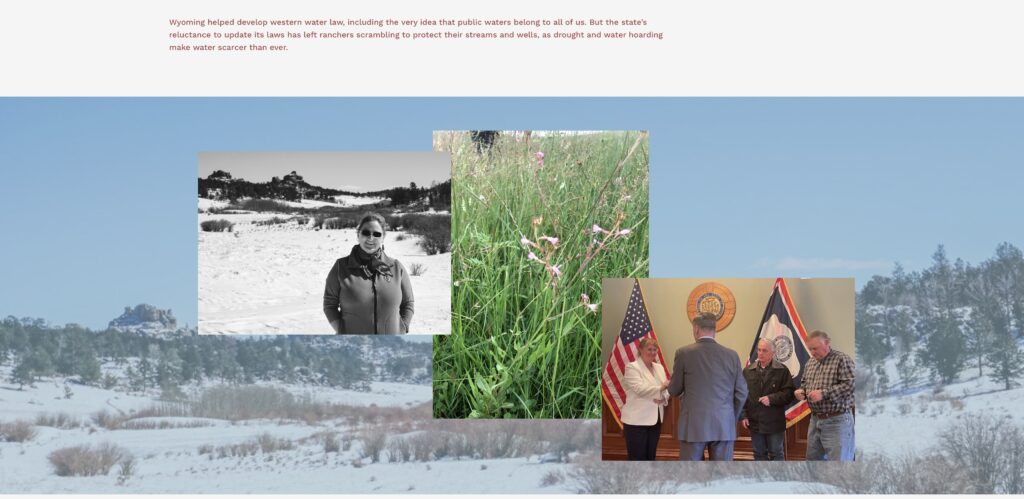In 2019 a Wyoming family applied for 8 high capacity wells that would annually remove 1.5 billion gallons (4600 acre-feet) from the Ogallala/High Plains Aquifer. Seventeen (17) neighbors, who are farmers, ranchers and rural landowners, formally opposed the granting of these permits. This land is located in a groundwater control area, which was established in the early 1980’s because problems had developing from too much groundwater pumping.
After a three day contested case hearing in the Wyoming Capital in Cheyenne, during which surrounding landowners united in opposition to the granting of these permits, the five member Laramie County Control Area Advisory Board issued a decision recommending that the State Engineer deny these permit. The decision emphasized the negative impact that these wells would have on the springs and creeks in the Horse Creek Valley.
Ranchers, farmers and rural residents rely on the High Plains Aquifer for their potable drinking water and stock water. All of the ranchers in the Horse Creek Valley depend on the presence of the springs and stream for their operations. The sub-irrigated meadows that result from these creek and springs provide productivity than lands. Formerly sub-irrigated meadows are more than two times less productive than hydrologically connected sub-irrigated meadows.
Because groundwater and surface water are interconnected, getting a groundwater right is like getting a surface water right, without having to apply for a surface water right. Managing the resource as one single source and supply is necessary to protect the health of the land and our riparian lands. The base flow of a stream or river is susceptible to being depleted up to the amount of water being pumped. Or stated another way, groundwater pumping can easily overwhelm the existing base flow and lower the water table, drying up surface waters.
In recent decades, humans have pumped trillions and trillions of gallons of water out of our aquifers. The result, is a slow desiccation of thousands of river ecosystems. Already somewhere between 15-21% of watersheds that experience groundwater extraction have slipped past a critical ecological threshold, and by 2050, that number could skyrocket to somewhere between 40-79%. We need to recognize the impact of groundwater pumping on surface waters. This issue has serious longterm environmental consequences for our society.
We have a shared responsibility to protecting the health of our land, water and the future generations’ need for a clean, safe and reliable water supply. I am asking the community to continue supporting this issue, so that we all have water for our health, our wellbeing, our environment, the public interest and our enjoyment.
You can support Reba Epler’s work on the payment page. PayPal or send a check.
https://www.wyomingpublicmedia.org/open-spaces/2024-11-01/laramie-county-water-tribal-treaty


“People are shopping around for where they can exploit groundwater,” said Reba Epler, a lawyer who works on water rights cases in Wyoming and New Mexico.
https://beta.prx.org/stories/434912

https://www.wyoleg.gov/Legislation/2022/HB0136
https://quiviracoalition.org/regenerate/2021-workshops/
https://www.thefencepost.com/news/march-hearing-for-high-capacity-wells-in-southeast-wyo/